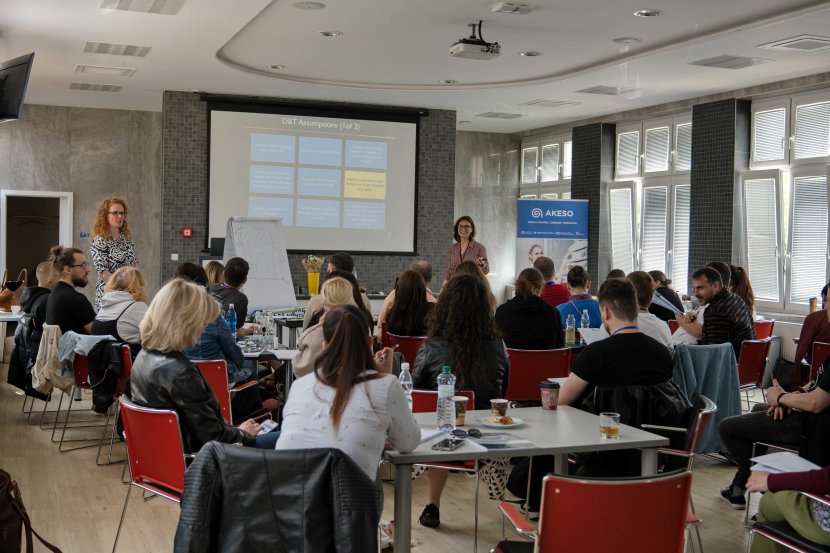The workshop covered the basics of DBT, including mindfulness techniques, emotion regulation, distress tolerance, and interpersonal effectiveness. Participants learned the foundations of DBT, how to conceptualize problem behavior, and how to effectively use key DBT strategies in their daily practice.
"The goal was to offer colleagues concrete tools that they can use immediately in their work with clients. It was especially designed for those who work with clients suffering from suicidal tendencies, self-harm and emotional instability especially in borderline personality disorder and adolescent patients. Thus, to show how to manage challenging conditions and how to communicate with the client in order to calm them down. I am delighted that there was such interest in the course and that we were able to host a leading lecturer with international experience. Within the Czech Republic, we are certainly one of the first to introduce this training into clinical practice," said the project leader and psychiatrist of the Centre for Mental Rehabilitation , Lucia Vašková, MD.
The participants appreciated especially the practical dimension of the training, during the workshop they tried out the individual techniques in model situations and worked with clinical examples. "The workshop largely met my expectations. We will certainly use this new knowledge in our practice," said Boris Dvořáček, M.D. , Head of the Acute Department of the Centre for Mental Rehabilitation.
His colleague, the head psychologist of the Beroun centre Mgr. " It is a great opportunity to learn what other possibilities there are for working with clients with borderline personality disorder who are treated in our specialized program, to learn other techniques and methods, and thus to enrich our work."
Several nurses also attended the workshop, one of whom was Bc. Monika Newaldová: "I want to expand my education in this field in particular, because working in psychiatry constantly leads you to further your education and gain new knowledge. Moreover, I find it interesting and useful that this training can be used in everyday life, not only in working with patients," says Monika Newaldová, who takes care of patients in the semi-acute ward.
Dialectical-behavioural therapy is a psychotherapeutic method developed by American psychologist Marsha Linehan to treat people with emotionally unstable personality disorder (especially borderline type) and other problems such as eating disorders, post-traumatic stress disorder or addictions.
Psychotherapist and trainer Amy G. Essletzbichler has been using this method since 2002, when she began using it as part of her profession as a social worker. In addition to her doctorate in psychology, she also holds accreditation and is a supervisor of DBT training. "Currently, my clinical practice in this area is in collaboration with Bangor University in the UK. The Dialectical Behavioural Therapy perspective combines the teaching of practical skills with addressing specific difficulties experienced by the client. In this approach, we emphasize both new learning and self-acceptance and compassion. I have tried to bring all of this to the professionals here in Beroun," says Dr. Essletzbichler, who, in addition to her work as a DBT therapist, has also been involved in cognitive-behavioural therapy and has worked extensively with patients with trauma, obsessive-compulsive disorder and body perception disorder.
According to her, DBT is applied almost all over the world and has even given birth to the World DBT Organization and the first World DBT Congress in Gdansk, Poland.














